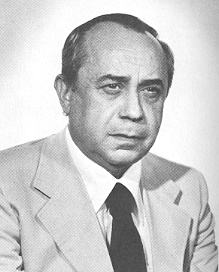
Beatrice Monroy (born 1953) is an Italian writer and dramatist.

Beatrice Monroy (born 1953) is an Italian writer and dramatist.
Beatrice Monroy was born and lives in Palermo, having spent many years in various Italian cities and abroad in France and the United States. [1] She is the daughter of Anna Oddo Monroy and Italian-American scientist Alberto Monroy . [2]
She is an author of short stories, theatrical texts, and novels. In 2005 she wrote the poem "Portella della Ginestra: Indice dei nomi proibiti," in which she recalled the Portella della Ginestra massacre on 1 May 1947. [3] [4] The subtitle "Index of Prohibited Names" evokes the historical Index of Prohibited Books and refers to the instigators of the crime, still officially unknown.
In 2012 her book Niente ci fu ('There was nothing') was published, [5] [6] [7] dedicated to the life of rape survivor Franca Viola, who rebelled against forced marriage in Sicily. [8] Franca Viola, interviewed by Concita De Gregorio, told her truth about this sequence of events in her life. [9]
Monroy's novel Oltre il vasto oceano: memoria parziale di bambina (Beyond the vast ocean: A girl's partial memory) [10] [11] [12] [13] [14] was nominated for the Strega Prize in 2014, [15] [16] and it won the 2014 Kaos Prize. [17] The next year, 2015, Monroy published her novel Dido: operetta pop, [18] [19] [20] [21] a modern Dido's journey "halfway between the epic and the comic, legend and reality, the mythic and the contemporary." [22]
Beatrice Monroy works in cooperation with Rai 3 Radio, directs an editorial series titled Passaggi di donne ('Passages of women'), and has conducted writing workshops for women who were victims of violence. She teaches dramaturgy at the School of Arts and Theatrical Performance Trades at the Biondo Theater Company of Palermo directed by Emma Dante. [23]
From an intuition by Beatrice Monroy...

Leonardo Sciascia was an Italian writer, novelist, essayist, playwright, and politician. Some of his works have been made into films, including Porte Aperte, Cadaveri Eccellenti, Todo Modo and Il giorno della civetta.

Costanzo Preve was an Italian philosopher and a political theoretician.

Bernardo Mattarella was an Italian politician for the Christian Democrat party. He was a cabinet minister of Italy several times, becoming one of the most important politicians of his generation.

Lorenzo Ferrero is an Italian composer, librettist, author, and book editor. He started composing at an early age and has written over a hundred compositions thus far, including twelve operas, three ballets, and numerous orchestral, chamber music, solo instrumental, and vocal works. His musical idiom is characterized by eclecticism, stylistic versatility, and a neo-tonal language.
Damiano Damiani was an Italian screenwriter, film director, actor and writer. Poet and director Pier Paolo Pasolini referred to him as "a bitter moralist hungry for old purity", while film critic Paolo Mereghetti said that his style made him "the most American of Italian directors".

Girolamo Li Causi was an Italian politician and a leader of the Italian Communist Party who was a prominent figure in the struggle for land reform and against the Mafia in Sicily. He labelled large estates Sicily's central problem.

The Portella della Ginestra massacre refers to the killing of 11 people and 27 wounded during May Day celebrations in Sicily on 1 May 1947, in the municipality of Piana degli Albanesi. Those held responsible were the bandit and separatist leader Salvatore Giuliano and his gang, although their motives and intentions are still a matter of controversy.

Alessandro Barbero is an Italian historian, novelist and essayist.
The Sicilian term fuitina refers to a practice that used to be common in Sicily and other areas of Southern Italy, whereby a young couple would elope in order to get married against the wishes of their families. The intent is that the prolonged absence of the fugitive couple would let their families presume that sexual intercourse had occurred and thus force them to consent to a so-called "rehabilitating wedding". While elopements of young couples are reported to be widespread in places such as Palermo, most of them only bear a surface relationship with traditional fuitine, as they are not necessarily aimed at a rehabilitating marriage.
Marco Betta is an Italian composer.
Francesco Cuccia, also known as Don Ciccio, was a member of the Sicilian Mafia and one-time mayor of Piana dei Greci. He is best known as the Mafia boss who triggered Benito Mussolini’s war on the Mafia, after humiliating him while visiting Piana dei Greci in 1924. He was described by the writer Norman Lewis as a Mafia potentate with an inflamed sense of his own importance. The Sicilian writer Giuseppe Passarello called him "Cuccia il sanguinario".

Giuseppe Di Giacomo is an Italian philosopher and essayist.
Giuseppe Casarrubea was an Italian historian and author.
Carlo Cataldo was an Italian historian, poet, and teacher.
Raffaele Caravaglios was an Italian bandmaster.

Giacomo Romano Davare is an Italian writer, actor, stage director and teacher.

Ignazio Florio Jr. was an Italian entrepreneur, heir of the rich Florio economic dynasty, one of the wealthiest Italian families during the late 19th century.
Alfredo Lucio Esposito, also known under the pseudonym of Alfredo Fiorani, was an Italian poet, writer, essayist and man of letters.
Carmelo Samonà was an Italian academic and writer, as well one of the most important Italian Hispanists.

Carla Cerati was an Italian photographer and writer. She began her career focusing on social and cultural issues through her lens. Her work often depicted the bourgeois lifestyle of Milanese high society, and she was known for capturing intimate moments with her subjects. In 1974, she published Mondo Cocktail, a photo book showcasing the lavish cocktail parties of Milan's elite, and in 1978, she released Forma di donna, a collection of nude female portraits. She also worked as a fashion photographer and collaborated with various publications throughout her career. Cerati passed away in 2020, leaving a compelling and thought-provoking photography legacy.